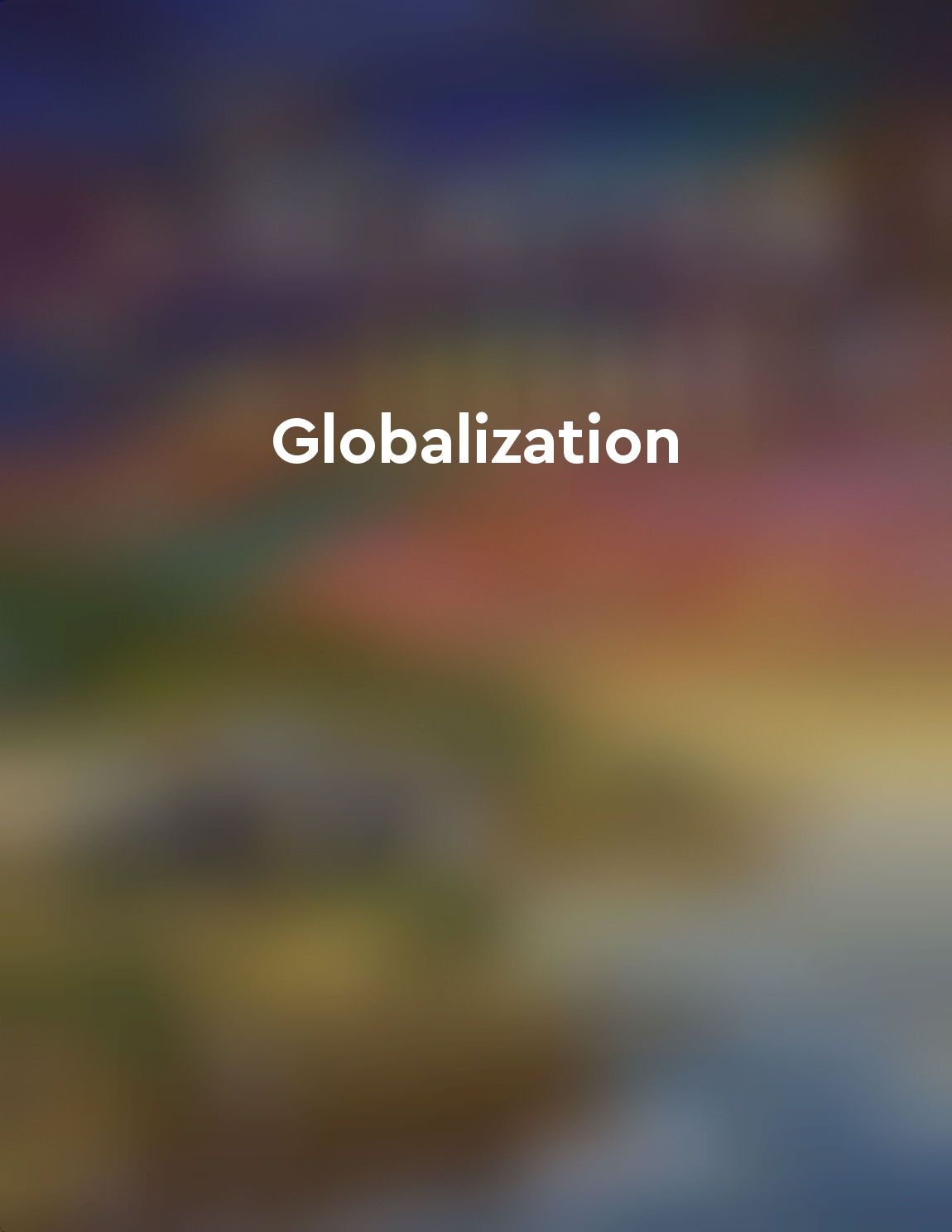Conflict resolution from "summary" of Globalization by
Conflict resolution is a crucial aspect of managing disputes and disagreements in the ever-evolving landscape of globalization. In a world where diverse cultures, beliefs, and interests intersect, conflicts are inevitable. These conflicts can arise on various levels, from individual interactions to international relations.
To effectively resolve conflicts, it is essential to understand the root causes and dynamics of the disputes. This involves identifying the underlying issues, interests, and values that are at stake for all parties involved. By delving deep into the complexities of the conflict, it becomes possible to develop strategies that address the core concerns and promote mutual understanding.
Communication plays a vital role in conflict resolution. Open and honest dialogue allows conflicting parties to express their perspectives, concerns, and emotions. Active listening and empathy are key components of effective communication, as they help foster trust and build rapport between the parties. Through constructive dialogue, it is possible to explore common ground, clarify misunderstandings, and work towards mutually acceptable solutions.
Negotiation is another essential tool in conflict resolution. It involves bargaining, compromise, and collaboration to reach agreements that satisfy the interests of all parties involved. Negotiations can take place in various settings, from formal mediation sessions to informal discussions. The goal is to find win-win solutions that address the needs and aspirations of each party while preserving relationships and promoting peace.
In some cases, third-party intervention may be necessary to facilitate conflict resolution. Mediators, arbitrators, and facilitators can help guide the parties towards resolution by providing neutral perspectives, managing emotions, and offering creative solutions. Third-party interventions can bring objectivity, expertise, and structure to the resolution process, increasing the likelihood of successful outcomes.Conflict resolution is about finding common ground, promoting understanding, and building sustainable relationships. It requires patience, creativity, and a commitment to peaceful coexistence. By embracing diversity, fostering dialogue, and seeking collaborative solutions, conflicting parties can navigate the complexities of globalization and forge a path towards harmony and cooperation.

Open in app
The road to your goals is in your pocket! Download the Oter App to continue reading your Microbooks from anywhere, anytime.


